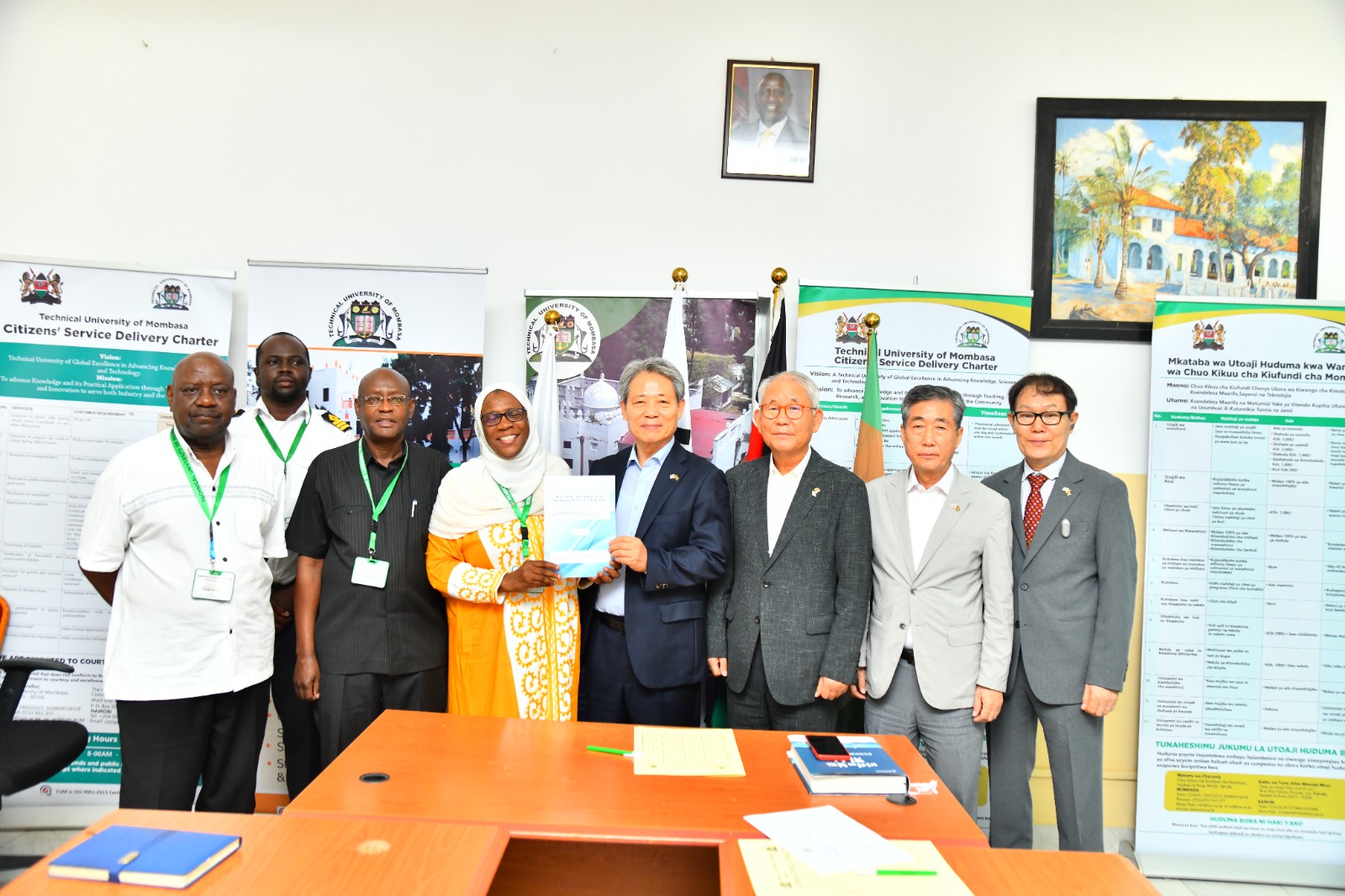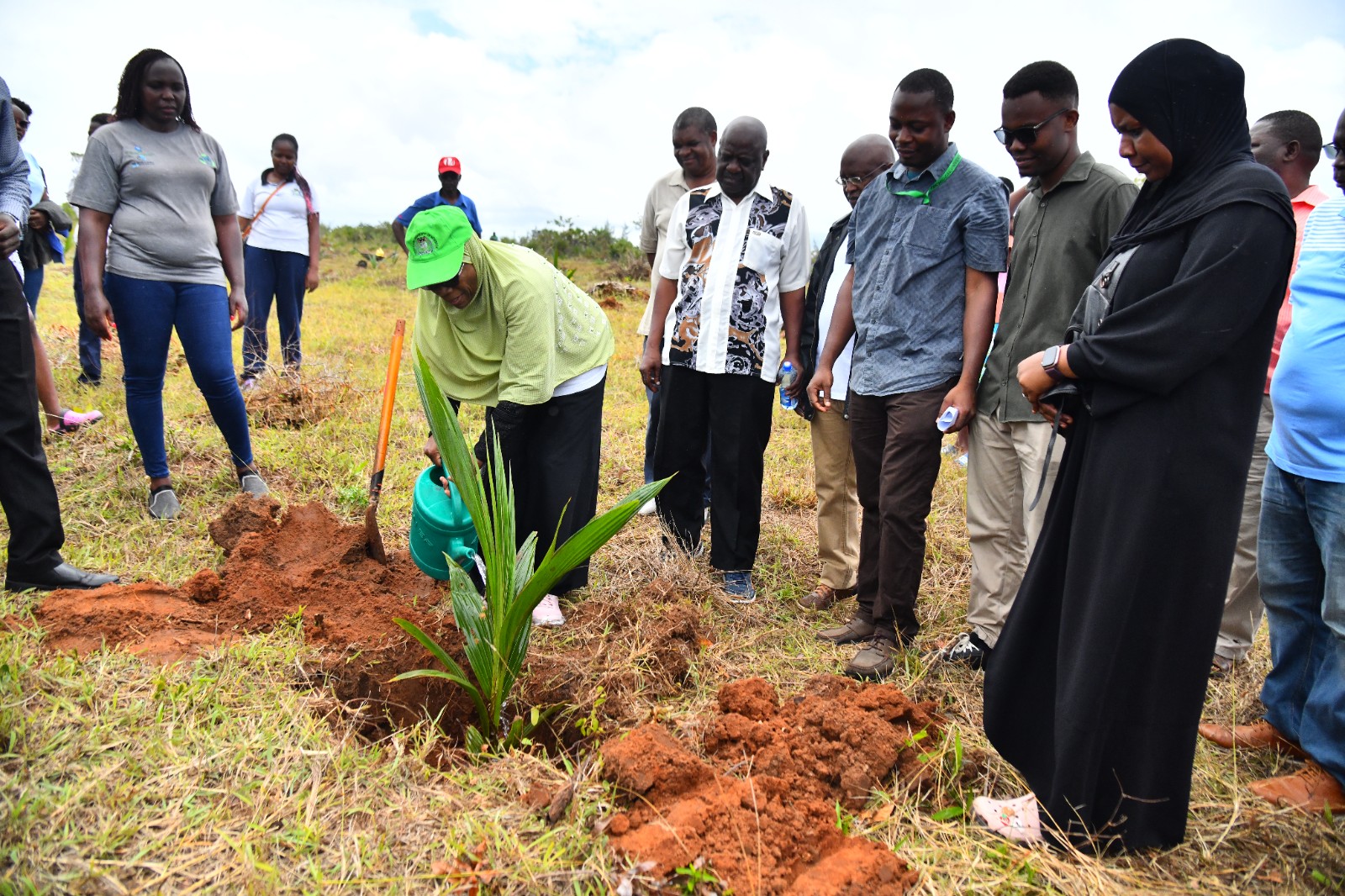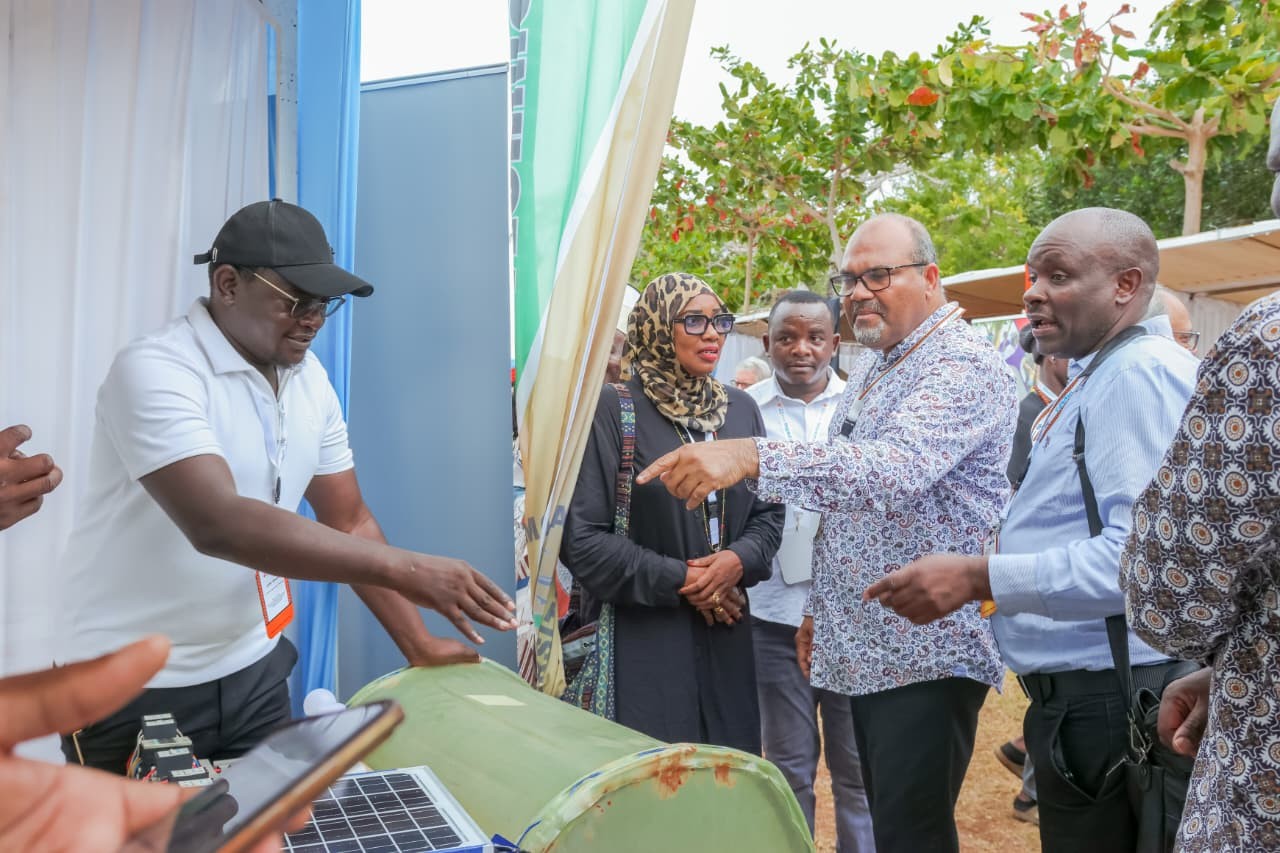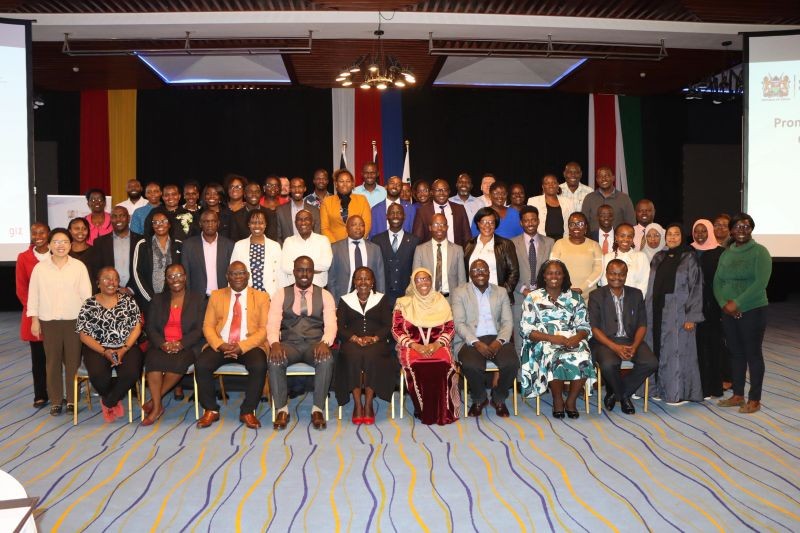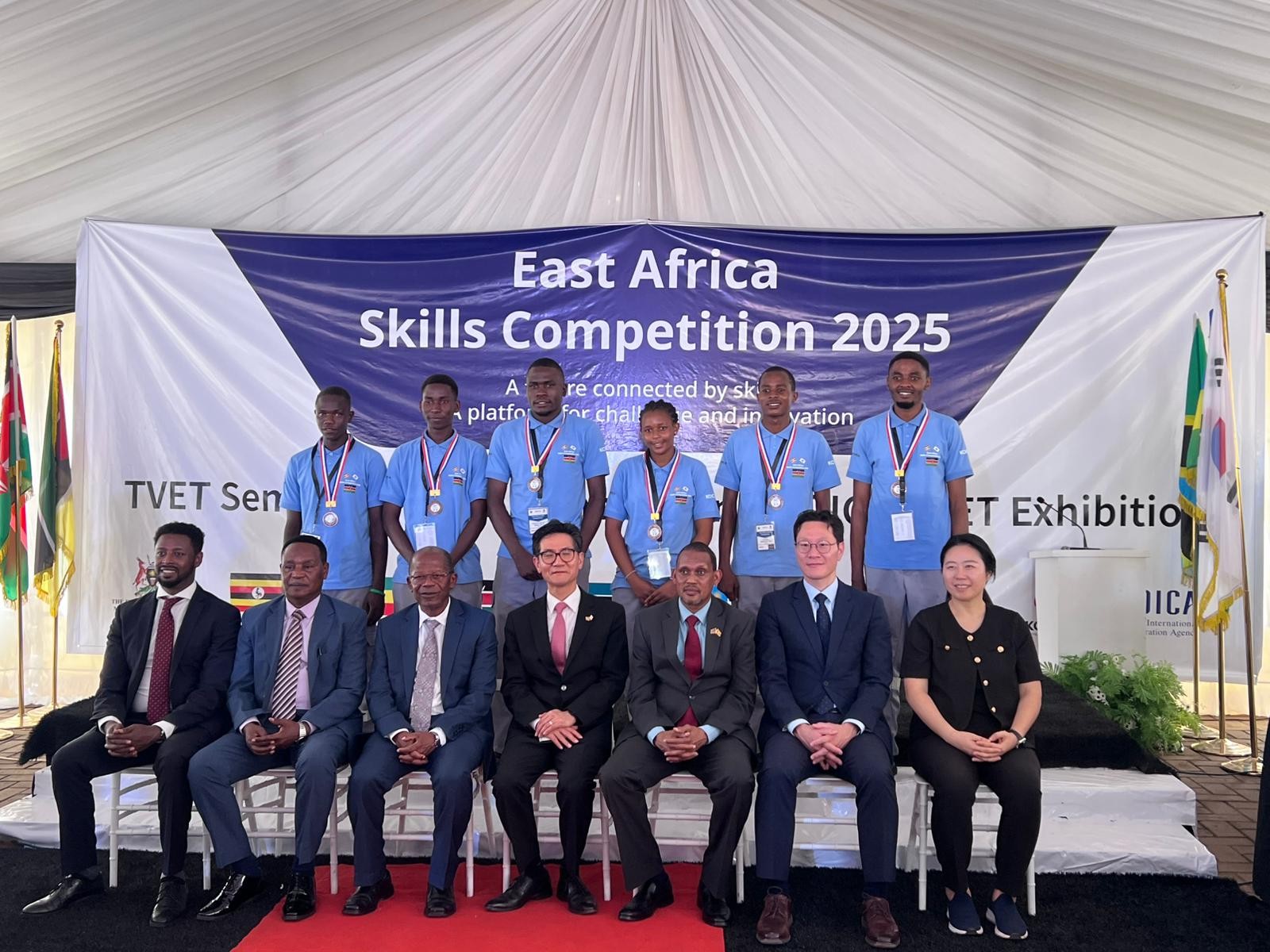Korea Institute of Maritime and Fisheries Technology (KIMFT) has signed a Memorandum of Understanding with Technical University of Mombasa (TUM) so as to strengthen their linkages, research and collaborations.
The collaboration is expected to take standard of maritime training at TUM to exemplary level through shared knowledge, experience, and technology between the two institutions.
KIMFT is a world class maritime education and research institute operated by the government of South Korea. It is located in Yeongdang-dong, Nam-gu, Busan, with auxiliary campus on Yeongdo island near Busan Port.
The Institute was formed in 1998 after the Korean government merged Korea Fishing Training Center with Korea Maritime Training and Research Institute. Both entities have an interesting history of evolution.
The former had initially been established in 1965 as the Korea Deep-sea Training Institute. In 1978, it became an independent corporation. The research institute was founded in 1983, and it was attached to Korea Maritime and Ocean University. The two were merged by an act of the National Assembly of South Korea passed in 1997.
Addressing TUM top management and staff on Friday, October 24, 2025, at the TUM's conference hall, KIMFT Rector Prof Jinsoo Park said the purpose of the visit was to explore potential collaborations between the two institutions.
The aim of the KIMFT and TUM collaboration is to enhance maritime education and research by combining the expertise and resources of both institutions.
Prof Park highlighted the importance of international collaborations in advancing maritime knowledge and providing quality education to students. Reflecting on Korea's own journey, he noted that the country started small but has made great strides in the maritime sector.
"In 1954, Korea had only three vessels. Today, Korea owns more than 1,688 ships," Prof Park noted.
In her speech, Vice Chancellor Prof Laila Abubakar highlighted that TUM has already established Maritime and Seafaring Studies Institute to prioritize maritime training programmes due to its proximity to the great Indian Ocean.
The Vice Chancellor urged all institutions offering Maritime programmes in Kenya to sign a joint memorandum of understanding to enable them share equipment and other vital resources to produce quality graduates.
“Kenya is lagging behind in this sector, our neighbours Tanzania and Ethiopia are doing well compared to Kenya. The demand is very high but we need to prioritize quality, not quantity,” the VC said.
“The collaboration between KIMFT and TUM would not only provide high-quality maritime education, but also focus on interdisciplinary research, innovation, and marine engineering practice,” Prof Laila said, adding that: “This collaboration would enable students and faculty to benefit from the diverse perspectives and experiences of both institutions, fostering a global approach to maritime education.”
She noted that the establishment of the Maritime and Seafaring Studies Institute at TUM would address the growing demand for seafarers and other maritime professionals globally, and contribute to the development of a well-rounded maritime sector.
The sentiments were echoed by Deputy Vice Chancellor in charge of Academic Research and Extension, Prof Peter Gichangi, who emphasized that maritime training is global; therefore, TUM will work with renowned institutions worldwide to provide quality training.
Director TUM Institute of Maritime and Seafaring Studies Institute Captain Talib Ibrahim lauded the Korea delegation for organizing a one-month training for 10 TUM staff in Korea. He said the beneficiaries will use the knowledge to equip students with latest technology in the maritime sector. The training was conducted from mid-September to Mid-October this year.
The collaboration between the two institutions is expected to provide students with a unique opportunity to receive comprehensive education that combines maritime expertise with technological advancements.
TUM, known for its excellence in engineering and technology, would greatly benefit from partnering with the Korea Institute of Maritime and Fisheries Technology, which has a strong reputation in the field of maritime technology.
This collaboration would not only attract talented students and faculty, but also it will facilitate knowledge exchange and joint research projects.

